Online MBA in Human Resource Management
Lead HR Strategy and Talent Development
- Apply By: 03/06/26
- Start Class: 03/16/26
Lead with confidence in today’s evolving workplace with SMSU’s MBA in Human Resource Management online. This program can be finished in as few as 12 months and will equip you with practical knowledge in recruitment, employee relations, compliance, and workforce planning. Learn how to apply HR best practices, navigate employment law, and develop strategic solutions that support both people and business goals. Whether you are managing talent or shaping organizational culture, this 100 percent online program gives you the tools to succeed.
Concentration Details
- Coursework is aligned with SHRM curriculum standards
- Learn from experienced faculty who bring real-world insight and valuable industry connections to help guide and support your success
- Accredited by the Higher Learning Commission
Explore Workforce Development and Strategic HR Practices
The curriculum for the online MBA Human Resources is designed around Society for Human Resource Management (SHRM) guidelines to strengthen your ability to align HR strategy with business goals. You will study the legal, ethical, and operational aspects of HR while sharpening leadership, communication, and cultural awareness. Customize your path with electives aligned to your interests, from talent development to organizational effectiveness.
Online Human Resource Management MBA Required Courses
This course is designed to give students an in-depth explanation of the basic functions regarding the field of human resource management. The primary focus will include best practices and practical application strategies within the field. Content areas include strategic planning, diversity, state and federal laws and regulations, recruitment and selection, employee relations, compensation and benefits, job analysis and evaluation, performance management, training and organization development, career planning, risk management, and union relations. The course will encompass the use of current event topics and critical analysis techniques regarding human resources, including ethical implications of decisions, and apply legal and ethical decision-making skills to human resource scenarios.
Select three of the following:
This course will help students develop an awareness of, and sensitivity to, the needs and conditions of diverse groups; theoretical and conceptual knowledge about diverse groups; and specific skills in interacting with people from various diverse groups. The class will approach discussions regarding diversity from the underlying issues surrounding privilege. Students will learn how invisible privilege impacts all aspects of life; this concept will be addressed from the perspective of primary and secondary characteristics of demographic diversity.
This course is designed to give students an in-depth exploration of training and its connection to employee development. The primary focus will include best practices and practical application strategies within the field. Content areas include an introduction to employee training and development and using strategic training; designing training through using a needs assessment, learning and transfer or training, program design, and training evaluation; training development methods including traditional training methods, technology-based training methods, and employee development and career management; and social responsibility and the future including legal issues, managing diversity, career challenges, and future trends in training and development. The course will encompass the use of current event topics and critical analysis techniques regarding employee training and development, including the development of a training module from the needs assessment to evaluation.
This course will focus on the various aspects surrounding human resource staffing and recruiting. Specific topics will include: recruiting processes, interviewing techniques, legal issues surrounding recruiting and staffing, forecasting and job analysis techniques.
This course will focus on the various aspects surrounding the compensation and benefits field within human resource management. Specific topics will include: terminology, development and implementation of wage and salary surveys, pay audits, job evaluation techniques, legal issues, the connection between pay and performance, the rationale behind various benefit policies, and various types of benefit programs.
Upon completion of the course, students will have a working understanding of:
- The evolution of unions in the United States
- How unions influence organizational strategic direction
- The advantages and disadvantages of unionization for organizations
- How the external environment influences both labor and management
- Legal aspects relative to labor-management relations
- The phases involved in developing a relationship between labor and management
- How labor agreements are developed and administered
SMSU’s online MBA includes 36 credit hours, and you can complete the program in as little as one year with accelerated course options. The core curriculum explores essential business topics like strategic management, international business, operations, and more.
Curriculum DetailsLead HR Strategy and Talent Development
Employment of human resource managers is projected to grow 6 percent from 2023 to 2033,1 reflecting the ongoing need for skilled HR leaders across industries. SMSU’s MBA in Human Resource Management online prepares you to meet this demand with advanced skills in talent strategy, organizational leadership, and compliance. Position yourself for career growth in a field that drives business success.
Compensation and Benefits Manager $140,360 per year2
Human Resource Manager $140,030 per year3
Explore More MBA Concentrations
SMSU offers a wide array of online MBA concentrations to match diverse career ambitions. Each concentration integrates current industry practices and real-world learning to build specialized expertise and practical leadership skills. Whether your goal is to drive innovation, lead global teams, or steer operations in dynamic sectors, SMSU’s online MBA programs are tailored to help you excel.
Sources
- Bureau of Labor Statistics, U.S. Department of Labor. Occupational Outlook Handbook. “Human Resources Managers.” Retrieved July 25, 2025, from https://www.bls.gov/ooh/management/human-resources-managers.htm.
- Bureau of Labor Statistics, U.S. Department of Labor. Occupational Outlook Handbook. “Compensation and Benefits Managers.” Retrieved July 25, 2025, from https://www.bls.gov/ooh/management/compensation-and-benefits-managers.htm.
- Bureau of Labor Statistics, U.S. Department of Labor. Occupational Outlook Handbook. “Human Resources Managers.” Retrieved July 25, 2025, from https://www.bls.gov/ooh/management/human-resources-managers.htm.

